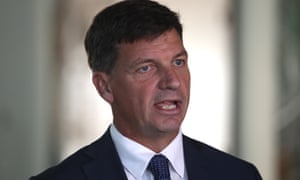Given the madness in the political debate over a 2050 target, let’s establish some basic facts
It’s not news to observe that as soon as anyone mentions climate change policy in Australia, madness generally follows. A fresh outbreak of stupidity in the political debate has been triggered by Labor’s decision last week to sign up to a net zero target by 2050.
Given the madness, let’s look at net zero, and establish some basic facts.
Given the madness, let’s look at net zero, and establish some basic facts.
Is net zero controversial?
Achieving net zero emissions by mid-century is certainly a challenging task, requiring the transformation of Australia’s carbon-intensive economy. But increasingly, net zero is not a controversial ambition.More than 70 countries and 398 cities say they have adopted a net zero position. Every Australian state has signed up to net zero emissions by 2050, and these commitments are expressed either as targets or aspirational goals.
Net zero has also been adopted by business groups in Australia who only a few years ago opposed Labor’s carbon pricing scheme. The Australian Climate Roundtable, which includes the Australian Industry Group, the Business Council of Australia, the ACTU, the National Farmers’ Federation and the Australian Council of Social Service, issued a statement late last year supporting policies requiring “deep global emissions reductions, with most countries including Australia eventually reducing net greenhouse gas emissions to zero or below”.
The BCA, which represents Australia’s biggest companies, says Australia should legislate a target of net zero emissions by 2050. Just for context, this same organisation characterised Labor’s 45% reduction target by 2030 – the opposition’s policy for the last election – as “economy wrecking”. The point here is: attitudes are shifting, and rapidly.
What is the Morrison government’s position on net zero?
Because the government is speaking out both sides of its mouth, the position is confusing. Let’s step through the sequence.Both the trade minister, Simon Birmingham, and the emissions reduction minister, Angus Taylor, have acknowledged over the past couple of weeks that signatories to the Paris agreement (and that’s Australia) have already signed on to achieving carbon neutrality by mid-century, or not long after.
As Taylor told Sky News on Monday: “There is that targeting built into the Paris agreement where the world has agreed to get to net zero emissions in the second half of the century. That’s already there.”
And Birmingham, on 10 February: “In signing onto the Paris agreement, Australia has committed to a net zero target for the world by the second half of this century, and we have to then work towards that, and we do that in the bite-size pieces of what we can achieve to 2030.”
But while acknowledging the commitment the government has already made for “the world” (and Australia was both a Paris signatory, and part of “the world”, last time I looked) – the government then also seems to suggest it hasn’t committed to anything, and won’t in the absence of a plan to get there – a plan it is yet to specify.
Will the Coalition adopt the target or not?
Very good question. Last Friday the finance minister, Mathias Cormann, confirmed the government “will be finalising a longer-term target in time for Cop26” (which is the UN-led climate talks scheduled for the end of this year) but Taylor’s language is different.The emissions reduction minister talks about “a long-term strategy” rather than a target, which is highly suggestive that the government won’t adopt a formal target despite having already implicitly signed up to a net zero objective by signing and ratifying Paris.
But just to be clear: nobody significant in the government is ruling out adopting a target over the course of the year.
Please explain
At the risk of making your head explode, Taylor disdained adopting a target in the same interview where he acknowledged that his own government had, in fact, voluntarily signed an international emissions reduction agreement with a net zero objective. Despite this obvious inconvenience, Taylor counselled: “You can’t pursue a target like this without clarity for what it means for Australia.”What about costs?
The government is also arguing at the moment it will not sign up to net zero without knowing what the costs are. Taylor indicated on the ABC on Monday that some work was “going on” to examine these questions – although it was entirely unclear what that work was, or whether it would also examine the cost of inaction. When some other work was put to the minister on Monday, work undertaken by the CSIRO, Taylor didn’t seem that interested. He noted he’d seen “lots of modelling” during the last election.It’s also passing strange that the government has been very attentive to the (absent) costs of Labor’s national commitment to a net zero target, but has not – at least in my hearing – pursued the premiers over the cost of their 2050 commitments. A recent bilateral energy and climate change agreement between the Morrison and Berejiklian governments expressly referenced the state’s “economy-wide target of net-zero emissions by 2050” without any criticism from Canberra.

No comments:
Post a Comment